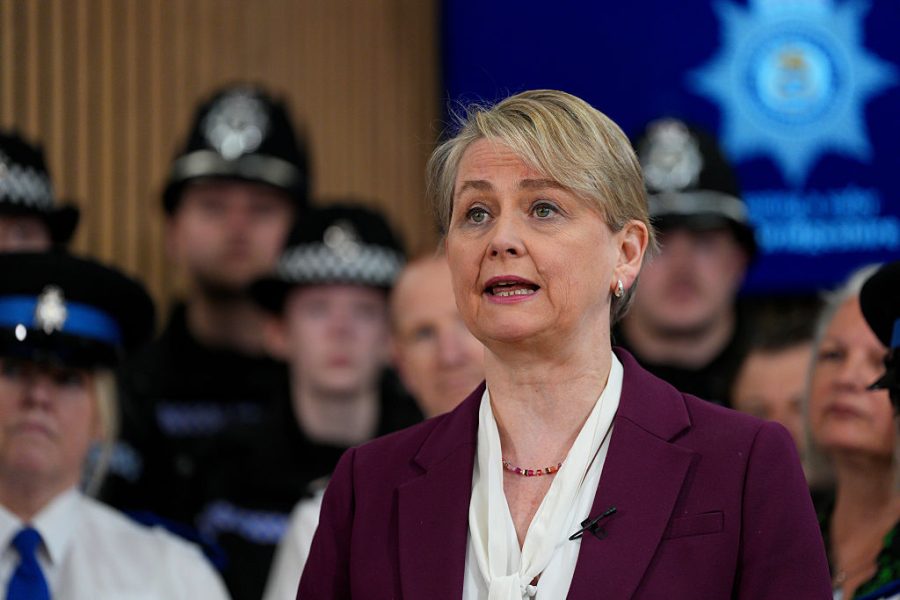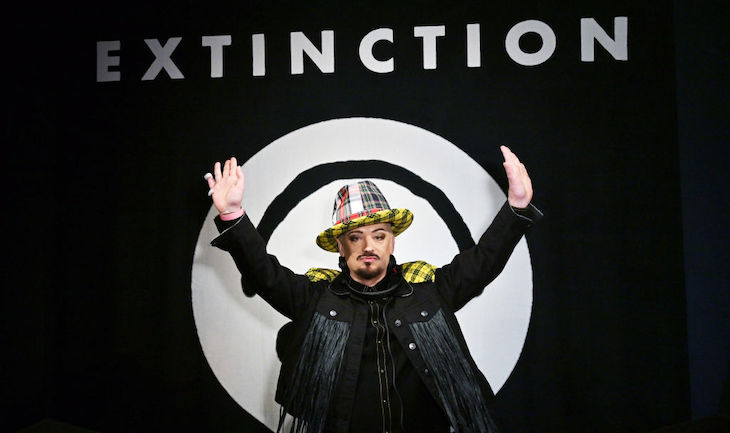Has the government really U-turned on grooming gangs? Six months after resisting a national inquiry into the crimes committed against young girls by men of predominantly Asian heritage, ministers have announced one. But Yvette Cooper’s statement to MPs this afternoon about the exact nature of that inquiry suggested the government had executed something a little wobblier than a U-turn.
The Home Secretary told the Commons that Louise Casey’s rapid review had recommended a national commission – with statutory inquiry powers – which will direct and oversee the local inquiries into grooming gangs that are already underway. It would not be ‘another overarching inquiry of the kind conducted by Professor Alexis Jay’, added Cooper. ‘Its purpose must be to challenge what the audit describes as continued denial, resistance and legal wrangling among local agencies.’ While it would be time-limited, the Home Secretary later told Reform MP Richard Tice that it would take around three years.
There will need to be quite a sustained storm to ensure that there is real change in policy
Is this a full public inquiry? Not quite. And it’s not quite a U-turn. But it’s enough of one for ministers to claim that they are taking grooming gangs as seriously as the row at the start of the year demanded. Detailing Casey’s ‘disturbing’ findings, Cooper said the law had
Ended up protecting [perpetrators] instead of the victims that they had exploited, deep rooted institutional failures stretching back decades where organisations who should have protected children and punished offenders looked the other way.
She added that ‘blindness, ignorance, prejudice, defensiveness and even good but misdirected intentions all played a part in this collective failure’. None of these findings are particularly new or surprising, other than the need for better data, particularly on ethnicity. On that, Cooper said Casey’s review had found the following:
In the local data that the audit examined from three police forces, they identified clear evidence of over-representation among suspects of Asian and Pakistani heritage men, and she refers to examples of organisations avoiding the topic altogether for fear of appearing racist or raising community tensions.
Given there is little that is new in what Casey highlighted, a more important question than what sort of volte-face ministers have executed is whether the new inquiry will lead to real changes. Cooper told MPs that further action was being taken to implement the recommendations of the seven-year inquiry from Jay. The recommendations from Casey included expunging the criminal records of those who had been convicted for child prostitution while their abusers walked free. The National Crime Agency will also launch a new criminal operation into grooming gangs which will develop a new operating model for police forces nationwide to ensure grooming gangs are always treated as serious and organised crime.
Both Cooper and Tory leader Kemi Badenoch spent considerable portions of their respective speeches pointing out that they had been working on this for years and arguing that the party on the other side of the Chamber had done nothing. Both of them had a furious tone as they railed against the injustice of it taking so many years for too few victims to get justice.
Badenoch – who would not normally, as leader of the opposition, respond to a statement from a secretary of state – also asked for details on what changed Keir Starmer’s mind from ‘thinking this was dog-whistle politics’. She also spent a fair chunk of time defending the Conservative record on tackling the sexual exploitation of children – something Cooper then used the report to try to repudiate.
Cooper and Badenoch also fought over whether Labour MPs had really voted against a national inquiry at the start of the year, as Badenoch claimed, or whether they were rejecting a Tory attempt to wreck the Children and Wellbeing Bill at second reading.
MPs representing areas where grooming gangs have already been uncovered, such as Paul Waugh in Rochdale, were not happy with Badenoch’s characterisation of their voting records. Waugh complained early on in the backbench responses that he felt a ‘cold fury’ while listening to the Leader of the Opposition.
That cold fury is presumably fuelled in part by the local opprobrium whipped up against MPs over that mischaracterisation of how they voted. Indeed, it was a national storm of opprobrium over a mischaracterisation that led to grooming gangs going from just one of many issues to being the dominant political story at the start of the year. Without that storm, it is unlikely Casey would have been given the audit or that there would be a national inquiry.
Given the poor record of all governments in following up the findings of all kinds of inquiries, there will need to be quite a sustained storm to ensure that there is real change in policy, not just a different sort of announcement to the one ministers intended to make when this row first surfaced earlier in the year.








Comments